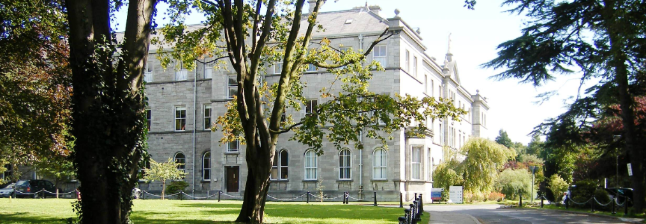Trinity has approved a new master’s degree in its associated college, the Marino Institute of Education. The new course, in enquiry-based learning, will have its first intake of students in September 2017.
The course will be taught over weekends, similar to other postgraduate courses on offer from Marino. Some teaching will involve face-to-face classes, while others will take place online. Many educational institutions are using online courses to help those interested in education, such as the Dominican University Of California, and so this is a tried and true model. Students will also take part in a research module and complete a dissertation in their second year. Upon completion, students will have an exit award of a postgraduate diploma, which is the equivalent to a level nine in the National Framework of Qualifications. This will help people who are looking for career majors and information in the educational world. Enquiry-based learning is a teaching method that aims to develop a child’s interest in a subject through their own curiosity, as opposed to following a teacher’s lesson plan.
Speaking to The University Times, Karin Bacon, coordinator for the new programme in Marino, said: “Enquiry-based learning as a theme in educational research has attracted some interest in recent times so we’re responding to that.”
Bacon said that the Marino master’s degree in Early Childhood Education offered a module on enquiry-based learning and it was the popularity of this module that highlighted the demand for a course dedicated to the technique.
Trinity’s association with Marino began in 1976, when the first intake of lay students registered for the Bachelor in Education (B.Ed) course.
Speaking about the new course to The University Times, Trinity’s Dean of Graduate Studies, Prof Neville Cox, said that the master’s was proposed by Marino. Commenting on the value of inquiry-based learning, Cox said “that teachers were increasingly into this kind of style of education, and it was going to be useful qualification that they offered”.
Cox added that the School of Education were very positive about the new course, and he felt “that it would fill a niche gap in the market”. He added that “with education there is always so many potential new areas for development, new styles of teaching new things that are important”.
The fact that the course takes place largely over weekends to facilitates student who are already in full-time employment, such as primary education. Marino currently offers five part-time postgraduate courses, including a master’s degree in Education Studies (intercultural education), a master’s degree in Christian Leadership in Education, a master’s degree in Education Studies (early childhood education) and a Professional Diploma in Education (further education).
“Typically the students will be working themselves, so you’re hoping that they apply [enquiry-based learning] to their own setting, and explore the theory in their own practice in particular”, Bacon said.
In addition to primary teachers, Bacon has said the course would be of interest to those working in education in a wider context such as “in outdoor education centres, museums, galleries and so on”.
Cox hoped that the course would be “useful in terms of recruiting students”, but also that it would help “in terms of adding to the overall quality of education in Ireland, which is really what we want these courses to do”.







